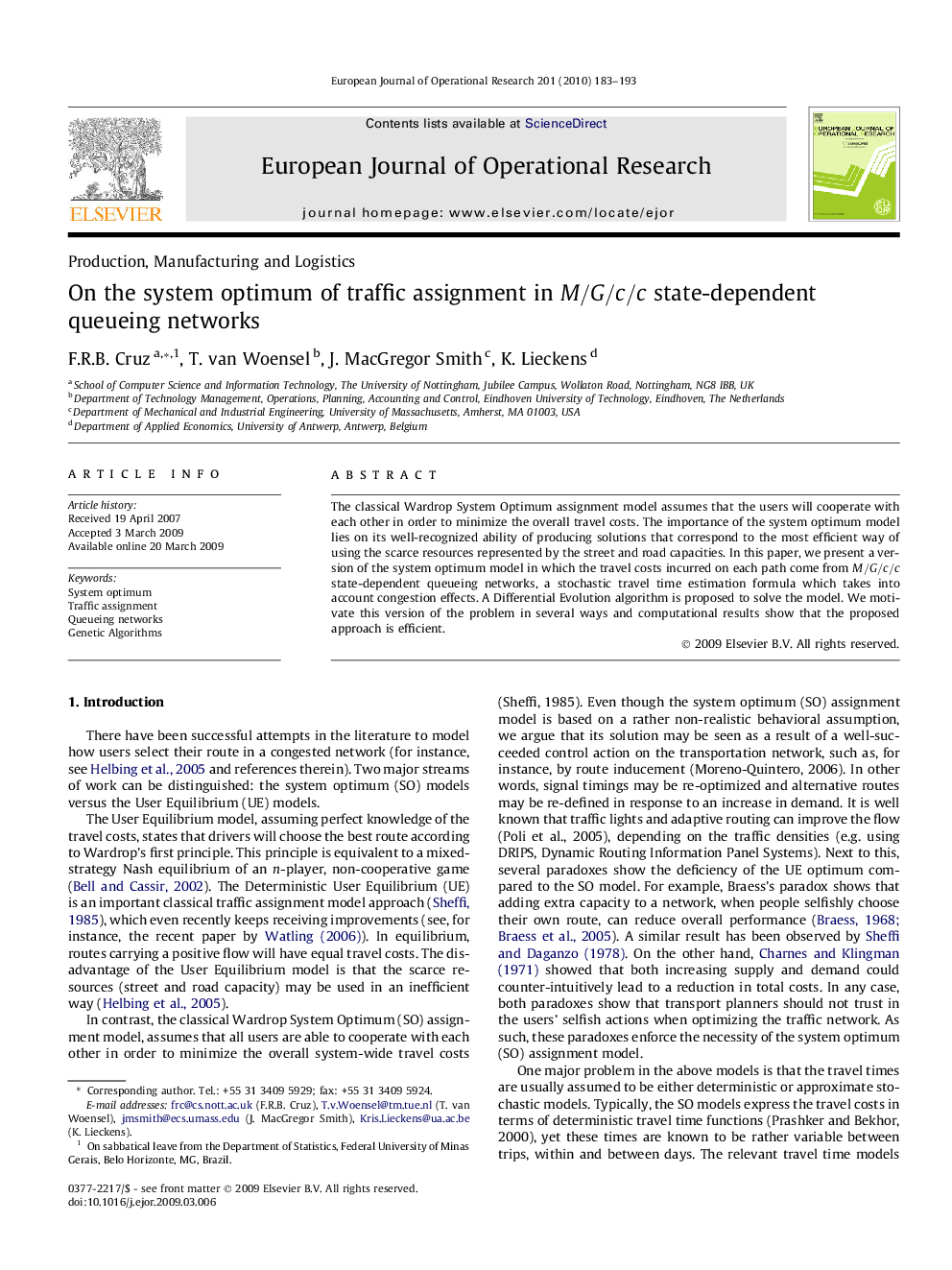| Article ID | Journal | Published Year | Pages | File Type |
|---|---|---|---|---|
| 478752 | European Journal of Operational Research | 2010 | 11 Pages |
The classical Wardrop System Optimum assignment model assumes that the users will cooperate with each other in order to minimize the overall travel costs. The importance of the system optimum model lies on its well-recognized ability of producing solutions that correspond to the most efficient way of using the scarce resources represented by the street and road capacities. In this paper, we present a version of the system optimum model in which the travel costs incurred on each path come from M/G/c/cM/G/c/c state-dependent queueing networks, a stochastic travel time estimation formula which takes into account congestion effects. A Differential Evolution algorithm is proposed to solve the model. We motivate this version of the problem in several ways and computational results show that the proposed approach is efficient.
